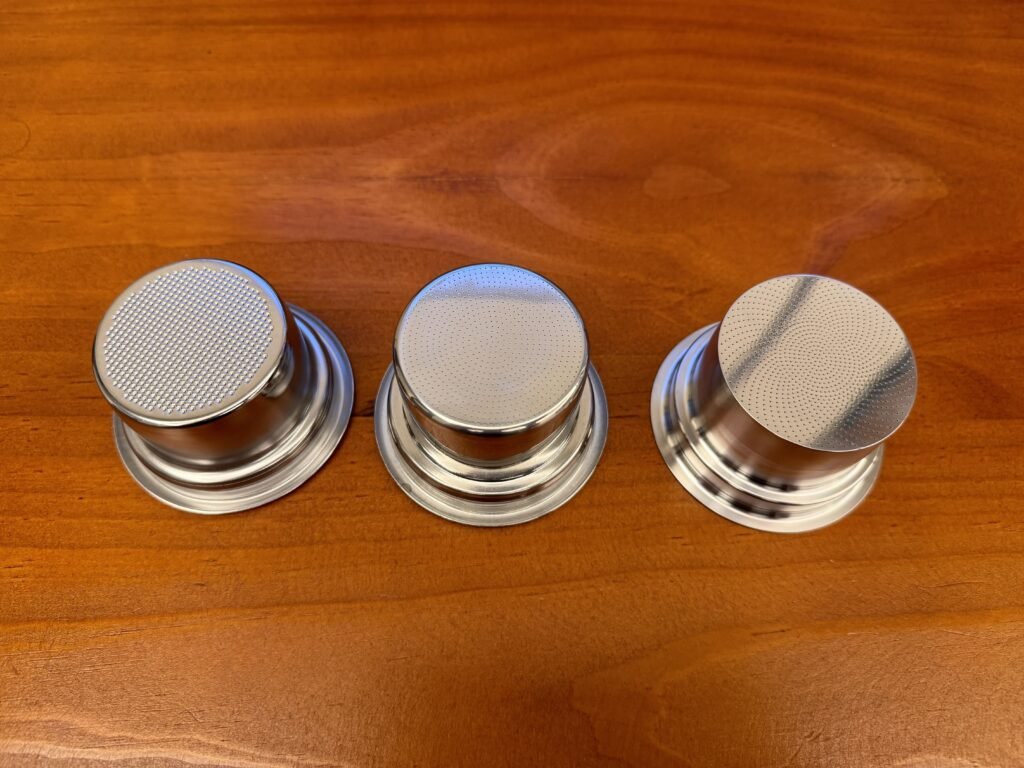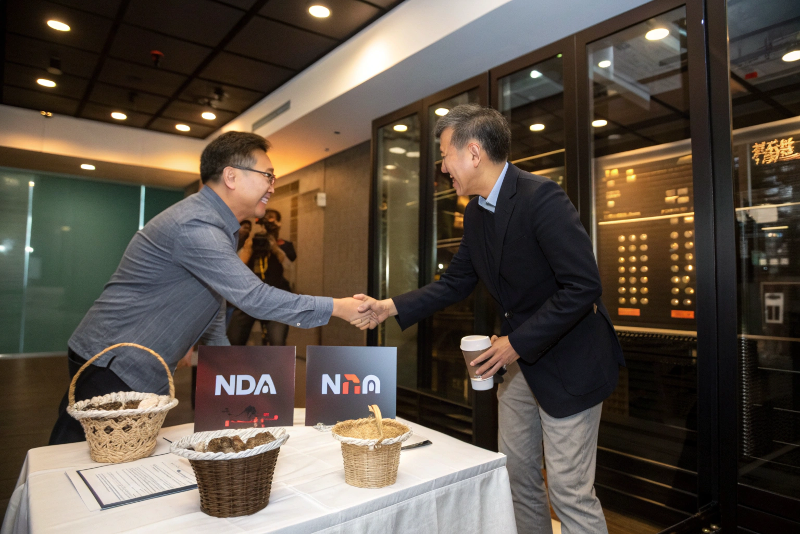Are you struggling to find quality coffee filter baskets that fit your exact specifications? Many coffee equipment distributors face this challenge, often settling for ill-fitting baskets that affect extraction quality and customer satisfaction.
Yes, you can import custom coffee filter baskets and shower screens from China in standard sizes of 51mm, 54mm, and 58mm, as well as custom diameters. Reputable manufacturers provide complete 2D/3D drawings in formats like STEP and DWG, with full dimension tolerances and revision history to ensure precision manufacturing.

I've been manufacturing coffee accessories for over a decade, and I understand the frustration of receiving components that don't quite meet your specifications. Let's explore what's possible when importing filter baskets and shower screens from China, and how we ensure precision engineering for every order.
What Standard Coffee Filter Basket Sizes Can Chinese Manufacturers Produce?
Are you uncertain about which basket sizes are available from Chinese suppliers? This common confusion can lead to compatibility issues with your existing coffee machines and accessories, causing delays in your product launches.
Most quality Chinese manufacturers can produce coffee filter baskets in the three standard sizes: 51mm, 54mm, and 58mm diameters. These sizes match the most common portafilters used in commercial and prosumer espresso machines worldwide, ensuring compatibility with brands like La Marzocco, Rancilio, and Breville.

These standard sizes aren't just arbitrary numbers - they represent decades of industry standardization. The 58mm basket is the most common in commercial machines, while 54mm is often found in prosumer models, and 51mm appears in compact machines. When we manufacture these baskets, we pay close attention to more than just the diameter. The basket depth, wall thickness, and perforation pattern all affect extraction quality. A well-designed basket needs proper wall thickness to maintain structural integrity during the high-pressure extraction process. The perforation pattern must be precise - too large and grounds will pass through; too small and water flow is restricted.
We use advanced punching machines with computerized controls to ensure consistency across production runs. Each basket undergoes multi-stage quality control, including dimensional verification using calibrated gauges and visual inspection for perforation uniformity. For specialty coffee shops and discerning distributors, these details matter significantly as they directly impact the cup quality their customers experience. When selecting a manufacturer, ask about their quality control process and whether they can provide sample baskets for testing before committing to a large order.
Can I Get Complete Technical Drawings for My Custom Coffee Accessories?
Do you worry about receiving products that don't match your specifications exactly? Many importers have been burned by manufacturers who don't provide adequate technical documentation, resulting in costly production errors.
Yes, professional Chinese manufacturers can provide comprehensive 2D/DWG drawings and 3D STEP files with complete dimensional tolerances and revision history. These detailed technical documents ensure transparency throughout the manufacturing process and allow you to verify all specifications before tooling begins.

Technical drawings are the foundation of successful manufacturing partnerships. When I work with clients on custom coffee accessories1, I ensure they receive complete documentation that meets international standards. The drawings we provide aren't just simple sketches - they contain crucial information that professional buyers need for quality assurance and regulatory compliance.
A complete technical package typically includes 2D drawings in DWG format2 showing multiple views (top, side, cross-section) with all critical dimensions clearly marked. Tolerance ranges are specified for each dimension using standard GD&T (Geometric Dimensioning and Tolerancing) notation. For 3D visualization3, we provide STEP files that can be opened in any modern CAD software, allowing your technical team to inspect the design from any angle and even integrate it into your assembly models.
The revision history4 is particularly important for tracking changes throughout the development process. Each drawing includes a revision table showing the date, description of changes, and approval signatures for each iteration. This creates accountability and prevents confusion about which version is current. For clients with ongoing orders, this documentation also serves as a reference point for future production runs, ensuring consistency year after year. Many of our clients keep these drawings on file for regulatory purposes, especially when supplying to markets with strict product safety requirements.
Is It Possible to Get Custom Diameter Baskets Outside the Standard Sizes?
Are you designing a unique coffee machine that requires non-standard filter baskets? Finding manufacturers willing to create custom diameters can be challenging, potentially forcing compromises in your innovative design.
Yes, experienced Chinese manufacturers can produce custom-sized coffee filter baskets outside the standard 51-58mm range. Custom tooling can be created for almost any diameter, typically between 45-65mm, though sizes outside this range are also possible with specialized equipment and engineering expertise.

Creating custom diameter baskets5 requires specialized engineering knowledge and manufacturing capabilities. When I work with clients on custom sizes, we begin with a thorough analysis of the application requirements. This isn't just about scaling up or down from standard dimensions - each new diameter presents unique challenges related to material flow, structural integrity, and production efficiency.
The process starts with understanding the complete ecosystem where the basket will be used. We need to know not just the portafilter dimensions, but also the tamper size, shower screen compatibility, and even the machine's brewing pressure. These factors help determine the optimal wall thickness, rim design, and perforation pattern. For example, larger diameter baskets may require reinforced walls to prevent deformation under pressure, while very small baskets need carefully designed perforations to maintain flow rate.
Tooling creation is the most critical and time-consuming aspect of custom basket production. We use high-precision CNC machining6 to create the molds and punches needed for manufacturing. This process can take 15-30 days depending on complexity, as multiple prototyping iterations may be necessary. The initial tooling investment is higher for custom sizes compared to standard ones, but it becomes cost-effective at scale. Most clients find that the ability to offer unique, proprietary basket sizes gives them a competitive advantage that justifies this investment. We maintain all custom tooling indefinitely, allowing you to reorder the same specifications without additional setup costs. This is especially valuable for equipment manufacturers who want to create proprietary components that aren't easily replaced with generic alternatives.
How Will You Validate the Drawings Against My Existing Equipment?
Do you fear investing in tooling only to discover the baskets don't fit your portafilters perfectly? This common concern has prevented many distributors from pursuing custom options, limiting their product range.
Reputable manufacturers use a multi-step validation process7 before finalizing tooling. This includes digital fit-up simulations8 using your CAD files, creating physical prototypes9 for testing with your actual portafilters and tampers, and providing comprehensive measurement reports before mass production begins.
[^7] for coffee filter baskets](https://coffeemachinetools.com/wp-content/uploads/2025/10/a-professional-split-screen-visualization-showing-.png)
The validation process is where engineering meets practical application, ensuring that what looks good on paper works flawlessly in the real world. I've implemented a thorough validation workflow that has saved countless clients from costly mistakes. It begins with digital simulation - we import your portafilter and tamper CAD models into our design software and run interference and clearance analyses. This digital mock-up identifies potential issues before any metal is cut.
However, digital validation is only the first step. The most critical phase is physical prototyping, where we produce sample baskets using techniques that closely approximate the final manufacturing method. These prototypes are sent to you for testing with your actual equipment. You'll check how the basket seats in your portafilter, whether it creates a proper seal, if your tamper fits correctly, and how it performs under brewing conditions. This hands-on testing often reveals subtle issues that even the best digital simulations might miss.
We document this validation process with comprehensive reports. Our quality control team uses calibrated measuring instruments to verify all critical dimensions against the drawings, creating detailed inspection reports that show actual measurements compared to specified tolerances. Any deviations are highlighted and addressed before proceeding. If modifications are needed, we update the drawings, create new prototypes, and repeat the validation process until everything meets your requirements perfectly. This iterative approach might take more time initially, but it prevents expensive mistakes and ensures the final product performs exactly as expected. Many clients have told me that this validation process is what sets us apart from other manufacturers who rush to production without adequate testing.
Will You Protect My Intellectual Property with Legal Agreements?
Are you concerned about sharing your proprietary designs with overseas manufacturers? Many companies hesitate to pursue custom coffee accessories due to fears of intellectual property theft or having their designs sold to competitors.
Yes, professional manufacturers will sign both NDA (Non-Disclosure Agreement) and NNN (Non-Use, Non-Disclosure, Non-Circulation) agreements before you share any CAD files or specifications. These legally binding documents protect your intellectual property and ensure your designs remain exclusive to your brand.

Intellectual property protection is a legitimate concern when working with any manufacturing partner, regardless of location. I take this issue very seriously and have established clear protocols to safeguard client designs and specifications. Before any technical information is exchanged, we execute comprehensive legal agreements that go beyond basic confidentiality provisions.
The standard NDA covers the confidentiality of information shared between parties, but the NNN agreement provides broader protection specifically designed for manufacturing relationships. The three "Ns" stand for Non-use (we cannot use your designs for any purpose other than fulfilling your orders), Non-disclosure (we cannot share your information with third parties), and Non-circumvention (we cannot work directly with your customers or bypass you in the supply chain). These agreements are typically drafted in both English and Chinese to ensure enforceability in multiple jurisdictions.
Beyond legal protections, we implement practical security measures within our facility. Design files are stored on secure servers with access restricted to essential personnel only. Production documentation is marked confidential and tracked throughout the manufacturing process. CAD workstations are isolated from general network access, and we maintain detailed logs of who accesses client files and when. For particularly sensitive projects, we can establish dedicated production lines with limited access. Many of our long-term clients appreciate that we treat their intellectual property with the same care we would our own innovations. This level of protection has allowed us to build lasting relationships with premium coffee equipment brands who initially had concerns about manufacturing in China but now trust us implicitly with their most innovative designs.
Conclusion
Custom coffee filter baskets and shower screens from China offer precision, flexibility, and quality when you work with the right manufacturer. With comprehensive technical documentation, validation processes, and IP protection, you can confidently develop unique coffee accessories that give your brand a competitive edge.
-
Discover innovative ideas and tips for designing unique coffee accessories that stand out in the market. ↩
-
Learn about the importance of DWG format in technical documentation and its role in manufacturing efficiency. ↩
-
Explore how 3D visualization tools can enhance product design and collaboration in manufacturing. ↩
-
Understand the importance of maintaining a revision history for accountability and clarity in technical documentation. ↩
-
Learn about the complexities involved in designing custom diameter baskets and how to overcome them. ↩
-
Discover the role of CNC machining in producing high-precision components for custom manufacturing. ↩
-
Explore the multi-step validation process that ensures custom products meet specifications and fit requirements. ↩
-
Learn how digital simulations can prevent costly mistakes in product development and improve design accuracy. ↩
-
Understand the significance of physical prototypes in testing and validating designs before mass production. ↩




